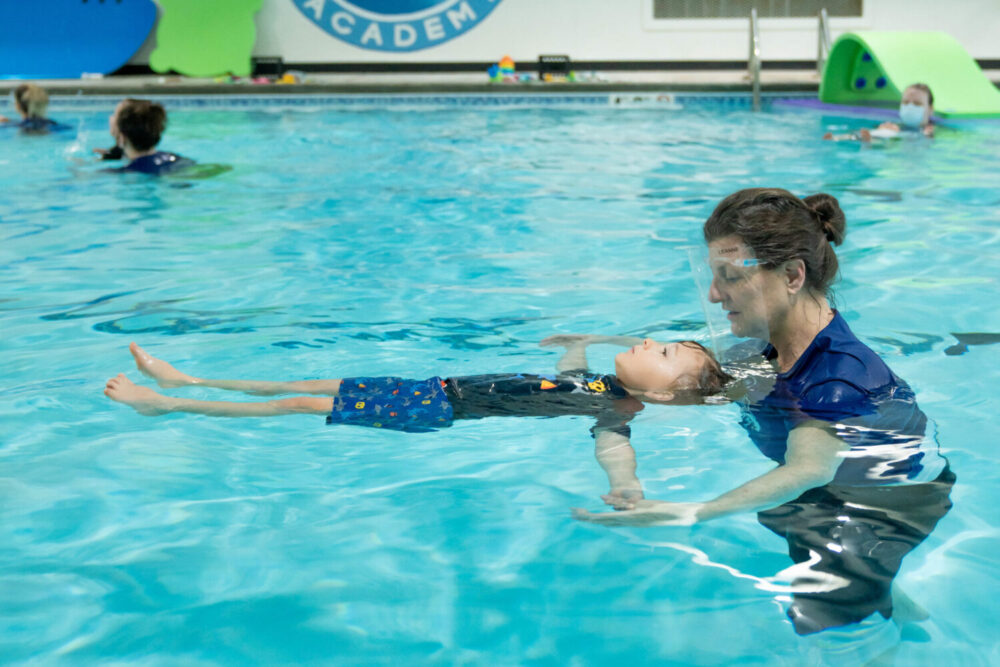Swimming is a wonderful activity that offers numerous physical and mental benefits. It can help improve cardiovascular health, build strength and endurance, reduce stress, and increase confidence. However, swimming can also be dangerous if proper safety measures are not followed. This is where swimming lessons come in. They not only teach you how to swim but also focus on water safety to ensure that you can enjoy the water safely.
If you’re looking to enroll in swimming lessons, it’s important to find a reputable program. In many countries, there are government-approved swimming programs such as “Swimsafer” that offer standardized lessons and certification. These programs not only teach you how to paddle but also focus on water safety to ensure that you can enjoy the water safely. With the guidance of experienced instructors and proper training, you can become a confident and skilled swimmer while also reducing your risk of water-related accidents.
A Detailed Breakdown
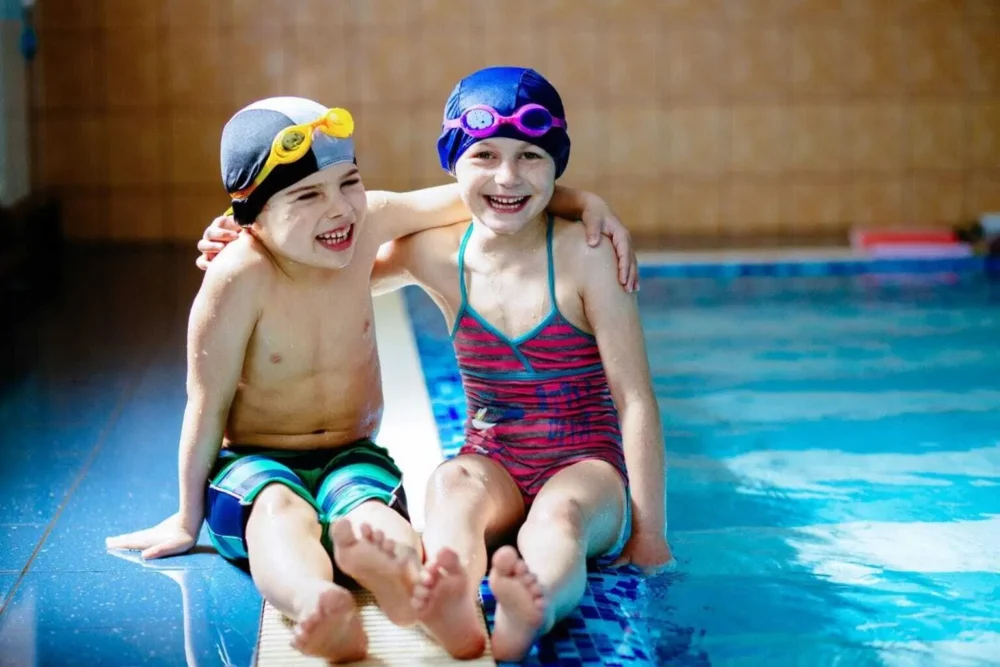
Source: pinterest.com
Swimming lessons are an excellent way to learn how to swim and stay safe in the water. However, if you’re new to swimming or haven’t taken lessons before, you may be wondering what to expect. In this article, we’ll break down what you can expect from lessons so that you can prepare for your classes and get the most out of them.
Mastering Basic Skills: The Foundation of Swimming
Learning basic skills is a fundamental part of swimming lessons. These skills provide the foundation for all other techniques and are essential for staying safe in the water. Here are some of the basic skills that you can expect to learn during your lessons:
Floating
Floating is one of the first skills you’ll learn in swimming lessons. It involves lying on your back or stomach in the water and letting your body float effortlessly. This skill is important for conserving energy while floating and can also help you stay safe in the water by allowing you to rest and catch your breath.
Kicking
Kicking is another basic skill that you’ll learn in lessons. It involves using your legs to propel yourself through the water. There are several different kicking techniques, including the flutter kick and the breaststroke kick. Mastering these techniques can help you become a more efficient and powerful swimmer.
Arm Strokes
Arm strokes are another important part of swimming. Different strokes, such as the freestyle and the backstroke, use different arm movements to propel you through the water. Learning proper arm technique is crucial for swimming efficiently and reducing the risk of injury.
Breathing
Proper breathing technique is essential for swimming. During your lessons, you’ll learn how to breathe while paddling and how to coordinate your breathing with your arm and leg movements. This skill is important for staying relaxed and efficient in the water.
Treading Water
Treading water is the ability to stay afloat in an upright position without using your arms or legs to swim. This skill is important for staying afloat and conserving energy in an emergency situation.
Mastering these basic skills will provide the foundation for all other techniques and will help you become a more confident and skilled swimmer. Don’t be discouraged if it takes some time to master these skills – with practice and patience, you’ll get there!
Staying Safe in the Water
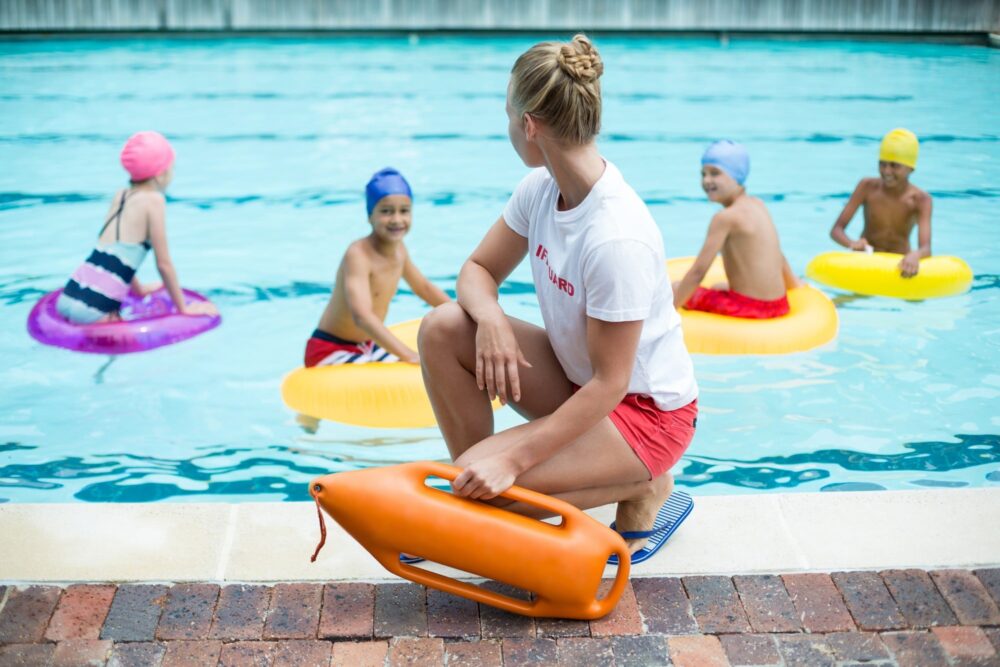
Source: pinterest.com
While learning how to swim is a fun and exciting experience, it’s important to prioritize water safety during your swimming lessons. Here are some of the key water safety skills that you can expect to learn during your lessons:
Breath Control
Breath control is an essential water safety skill that involves being able to hold your breath for an extended period of time while swimming. This skill is important for staying safe while diving or swimming underwater.
Recognizing and Avoiding Hazards
Your lessons will also teach you how to recognize and avoid hazards in the water, such as deep areas, strong currents, and underwater obstacles. Knowing how to identify these hazards and how to navigate around them is critical for staying safe in the water.
Entering and Exiting the Water Safely
Entering and exiting the water safely is another important water safety skill that you’ll learn during your lessons. This includes knowing how to step into and out of the water safely, as well as how to properly use ladders and other entry and exit points.
Basic Rescue Techniques
While hopefully never needed, you may learn some basic rescue techniques such as how to support and guide a struggling swimmer to safety. These techniques could come in handy if someone nearby is in trouble in the water.
Proper Use of Safety Equipment
You will also learn how to use safety equipment such as life jackets, buoys, and rescue tubes. Knowing how to use these items properly can be a lifesaver in an emergency situation.
Different Strokes
Depending on the level of the class, you may learn different strokes such as the freestyle, backstroke, breaststroke, and butterfly. Each stroke has its own technique and benefits, and mastering them can help you become a more efficient and confident swimmer. Learning different strokes can also add variety to your swimming routine and make it more enjoyable.
Practice Time
Swimming lessons typically include plenty of time to practice what you’ve learned. This can be done with the help of an instructor or in small groups with other swimmers. Practice time is essential for improving your skills and building confidence in the water. It also allows you to ask questions and receive feedback from your instructor.
How to Get the Most Out of Swimming Lessons: Tips and Strategies
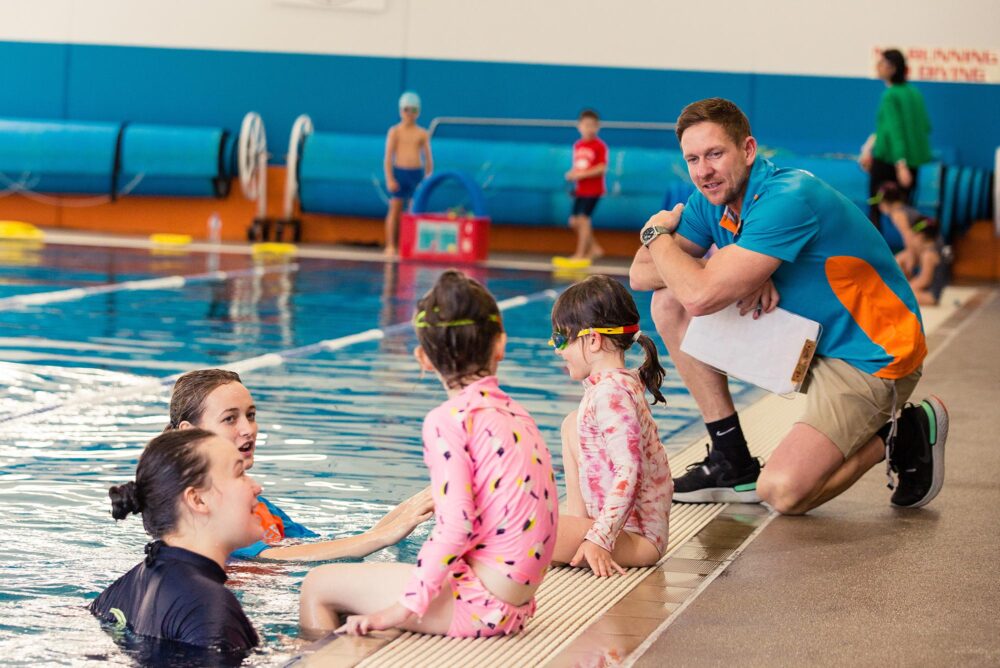
Swimming lessons can be a fun and rewarding experience, but it’s important to make the most of your time in the pool. Whether you’re a beginner or an experienced swimmer, there are several things you can do to get the most out of your lessons. In this article, we’ll share some tips and strategies to help you maximize your learning and progress in the water.
Be Consistent
Consistency is key when it comes to lessons. It’s important to attend all of your classes and arrive on time. Missing classes or showing up late can disrupt your progress and make it difficult to keep up with the rest of the class. Additionally, consistent practice outside of class can help reinforce what you’ve learned and improve your skills faster.
Listen to Your Instructor
Your instructor is there to help you learn and improve, so it’s important to listen to their guidance and follow their instructions. Ask questions if you’re not sure about something, and don’t be afraid to ask for feedback on your technique. Your instructor can provide valuable insights and tips to help you improve your skills and become a better swimmer.
Practice, Practice, Practice
Practice makes perfect, and this is especially true for swimming. Take advantage of any practice time that’s available during your lessons, and consider practicing outside of class as well. Even just a few minutes of practice each day can make a big difference in your progress. Make sure to focus on the skills that you struggle with the most, and seek out additional help or resources if needed.
Set Goals
Setting goals can help you stay motivated and focused during your swimming classes. Whether it’s improving your freestyle stroke or being able to swim a certain distance without stopping, having a specific goal in mind can help you work towards something tangible. Make sure to set realistic goals that are challenging but achievable, and celebrate your progress along the way.
Summary and Final Thoughts
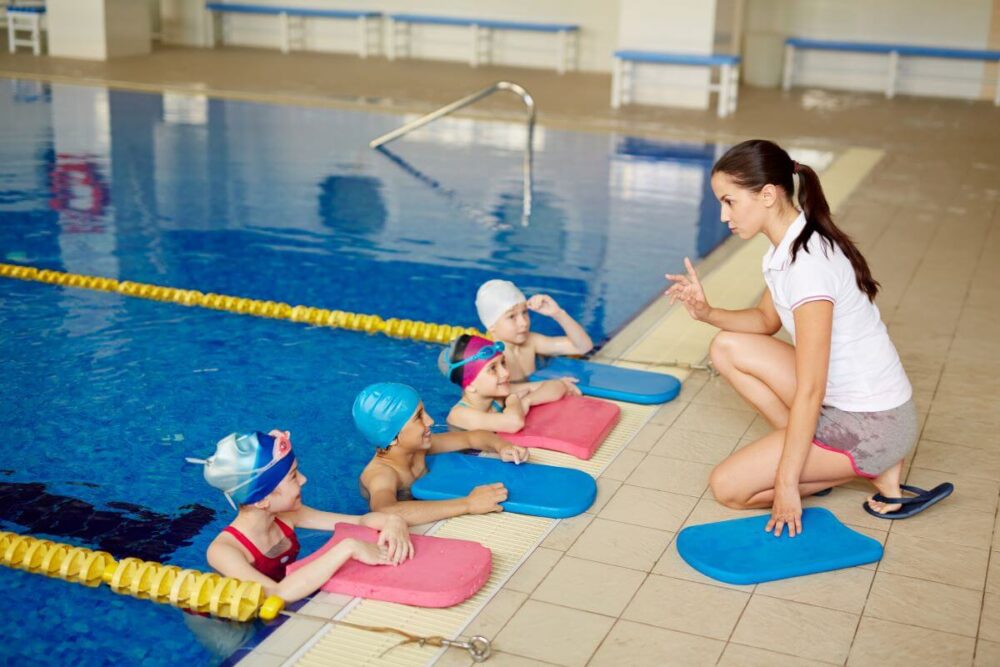
Source: youtube.com
Swimming lectures are an excellent opportunity to learn valuable life skills while having fun and staying active. Whether you’re a beginner or an experienced swimmer, there’s always room to improve and learn new techniques. In this article, we’ve covered some of the key aspects of lessons, including what to expect, how to stay safe, and how to get the most out of your lessons.
When starting your swimming lessons, it’s important to focus on mastering basic skills such as floating, kicking, and breathing. These skills provide a foundation for more advanced techniques and will help you stay safe in the water. Additionally, water safety should always be a top priority, and you should be aware of the potential hazards and how to avoid them.
To get the most out of your swimming classes, consistency is key. Attend your lessons regularly, practice outside of class, set achievable goals, listen to feedback, and be patient. With dedication and effort, you’ll be able to progress quickly and become a confident swimmer.
Swimming lessons are not just about learning to swim; they’re also about building confidence, improving fitness, and having fun. So, whether you’re taking lessons for the first time or looking to improve your skills, remember to enjoy the process and dive into your classes with enthusiasm and curiosity.


